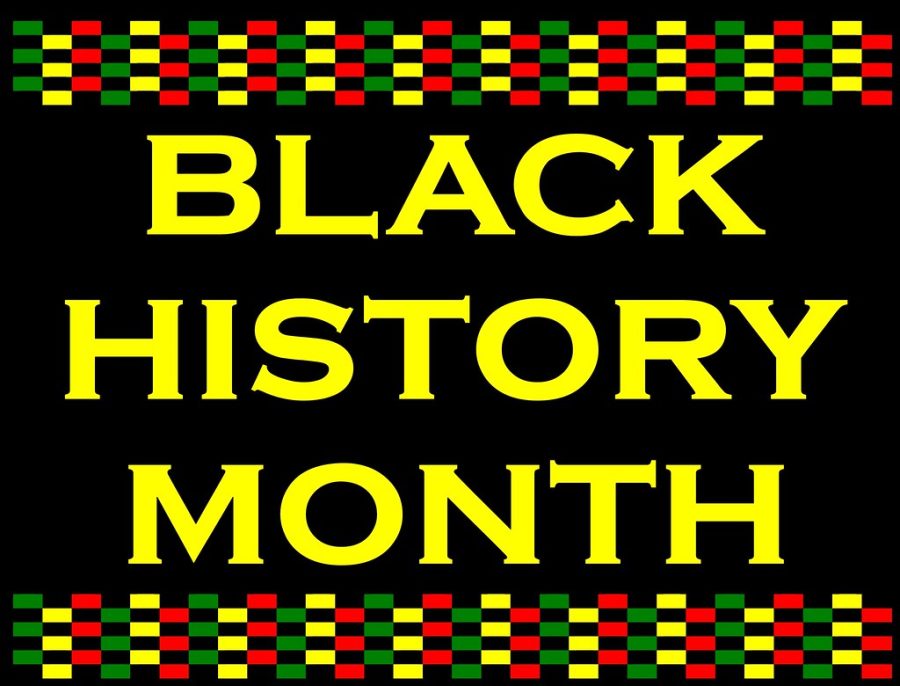Black History Month: Misrepresentation Over the Years
February 17, 2022
Along with Valentine’s Day and mid-winter break, February also represents African Americans and their history in the United States, something often overlooked by many. However, it deserves to be equally represented and people should educate themselves about Black history.
An article by Thought.co states, “We hear about Martin Luther King Jr., George Washington Carver, Sojourner Truth, Rosa Parks, and many other famous Black Americans, but what have you heard about Edward Bouchet, or Bessie Coleman, or Matthew Alexander Henson?” Often we do not think beyond what is taught to us, so we do not have as much information about other topics or people. These flaws mostly begin with the education system. Until a student reaches eighth grade or high school, the atrocities that were committed against this communal group are never truly taught to people, instilling a pure version of America. This is a problem because some people start to see America as a perfect country and catch on to the paternalistic racist perspectives that should in fact be rejected. Freshman Sahasra Kandula says, “I often feel as though the parts of history that heavily refer to African Americans are skimmed [over], and we never go really in depth into their stories like we do with other historical figures. It kind of applies to every ethnicity that is not Euro-centric; I recently learned about Black aristocrats in medieval European society– we never discussed that in history. We could have more specific sub units and lessons that specifically focus on Black history in school.” As she criticizes the U.S. education system and calls them out for blatantly disregarding certain groups of people, she emphasizes the lack of enforced importance of this topic in our curricula.
However, this discrimination is not limited to the educational system. It is equally possible to be seen or witnessed at workplaces. Junior Rama Bah states, “I’ve been discriminated against at work myself so it does happen. As a country, we still have lots of work to do [to solve this issue].” Many young and old workers are victims of this terrible behavior and are sometimes unable to speak up against it due to their position and avoiding arguments with a superior member.
Senior Digant Dash stated, “The significance of Black History Month is to celebrate Black history, which is American history.” Although not all Americans accept this and are not educated themselves. An article published by Mid-Continent Public Library states, “There is a very popular Oscar nominated movie… called Hidden Figures, which recounts the true story of several African American female mathematicians (Katherine Johnson, Mary Jackson, and Dorothy Vaughan) who were hugely important in the early days of the American space program.” The movie depicts the type of environment and behavior that they are surrounded by, reflecting severe discrimination towards the characters which was meant to take place during the 1960s. In the past many years, conditions do not seem to have improved for Black Americans, especially for women. The article continues, “Despite their contributions, these women and their stories have remained mostly unknown by the general public. And they are not the only figures in black history who have been forgotten or ignored.” Movies like “Hidden Figures” do a wonderful job expressing that people must put in their effort to bring significant changes to society. However, due to limited knowledge about African American figures in diverse roles, most people fail to understand the deeper intent of the actions that these specific people took in their lives and how they impacted others that could relate with them.
Sophomore Priyanka Subramanian states, “Although people are more aware now, especially after the Black Lives Matter Movement in 2020, they have yet to broaden their range of knowledge and know more than the one or two figures taught at school or most commonly talked about.” Today, African Americans have a huge impact on the United States. An article by Six-Two by Contiki states, “Kamala Harris symbolises a current figure of hope in today’s world; in January, she officially became the United States first female vice president – and with it, the first Black woman to hold this position… [and] Amanda Gorman is the youth poet laureate and activist who’s taken the world by storm and, despite being such a modern (and young) figure, age just 22, she’s already become an icon for living Black history.” With a few more examples including Annamie Paul, Marsha P. Johnson, and writer, Audre Lorde, the article mentions the backstories of several black figures that were crucial to history but are rarely spoken about with proper background. An article by Arcadia Publishing states, “Despite being one of the most highly regarded scientists in American History, Carver’s contributions are today mostly unknown to the general public.” Overall, people just need to be taught correct information about African Americans; knowing the name is not enough to give them the equality and respect that they deserve.
Dash adds, “The biggest yet most simple way [to improve this] is to keep yourself and other individuals in check. Society is made of individuals so they have got to change in order for society to change. If you catch someone, whether it be a friend, parent, teacher, or even just a random person being racist, you have to call them out on it.” If people take the initiative to speak up and actually convey true messages about African Americans, it would definitely justify Black History Month and pay it the respect it deserves.



